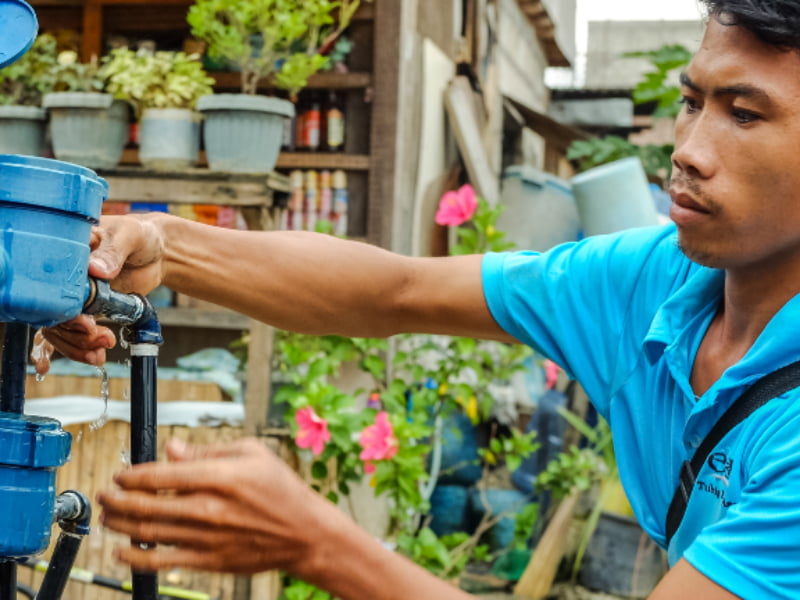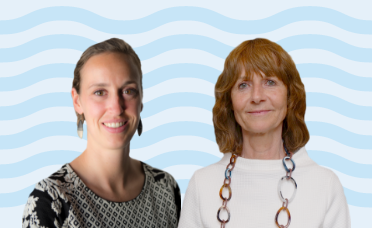Can public-private partnerships help bring SDG6 within reach?
The Netherlands has a long history of investing in public-private partnerships (PPPs). Already in 2003, a call for ideas was sent out into the world by former Minister for Development Cooperation Agnes van Ardenne. The ministry received over 400 requests for development-oriented PPPs, showing the potential for this concept.

Since then, our interest in PPPs has increased, as did our understanding of their potential and challenges. PPPs can bring out the best in agencies, enterprises and civil society. They have the potential to create sustainable system change in developing countries. But can they be part of a strategy to achieve SDG6?
Full potential
To be honest, working in PPPs brings advantages but also challenges. In 2012, the Netherlands government launched the Sustainable Water Fund (FDW) programme. FDW supported 42 partnerships in developing business cases to scale up new water services. 10 years later, some projects have ended as planned, some stopped early, and many are still ongoing. Several ongoing projects have just started scaling their activities and implementing their underlying business models. So, it is still premature to determine the full potential of PPPs and their contribution to achieving the SDG6 goals by 2030.
Dealing with uncertainties
We have found that experienced organisations are more successful in new partnerships. These experienced partners have already discovered the advantages of working together, learnt to speak each other's languages, and are flexible in adapting to changing circumstances. Bridging different cultures and goals is a process, especially when the world is in turmoil.
The COVID-19 pandemic and the food and energy crises have significantly impacted developing countries, leading to economic uncertainty and increased poverty. It takes exceptional skills to jointly roll out new business models in emerging markets and reach the poor. Political instability can be a major obstacle to the success of a PPP, as we have learnt from PPP projects on food security in Egypt and Ethiopia.

Conflict of interests
Different organisations and individuals may have different priorities, ranging from short-term profits to long-term local needs. This can create challenges in integrating PPPs into overall development strategies. Also, it may lead to a preference for easier or more immediate solutions.
Recognising and effectively managing these differences requires navigating complex relationships, which may only sometimes have a straightforward solution. Over time, these relationships between partners evolve, and critical issues may arise at any partnership stage, including behaviours such as 'free-riding' or even misuse of public resources.
Engaging the private sector in achieving SDG6
Despite the challenges, involving the private sector in addressing global water challenges is crucial. Governments often lack the capacity and finances to tackle these issues independently. PPPs offer an opportunity to reallocate and share risks and responsibilities, allowing the private sector to become more active in complex regions where implementation would otherwise be difficult and risky.
Another compelling reason to engage the private sector in achieving SDG6 is the significant financing gap. The estimated cost of achieving the SDGs is between 5-7 trillion US dollars, which cannot be funded by the public sector alone. With less than 8 years to achieve the goals, mobilising private sector resources is critical.
Mid-term review
We believe that PPPs are a valuable tool to drive progress and make a meaningful contribution to SDGs related to hunger (SDG2), water (SDG6), economic development (SDG8) and partnerships (SDG17) by 2030. PPPs can foster the necessary system changes. Despite the challenges that come with daily practice, we have seen the progress PPPs can produce. The FDW mid-term review (currently ongoing) will include an in-depth evaluation of the PPP concept, which will help us better understand the crucial factors for success. By showcasing the success of PPPs (and the lessons when they did not), we hope that many PPPs will follow in their footsteps.
Insights from water experts Karin Roelofs and Jopy Willems at the Netherlands Ministry of Foreign Affairs.
- Ministry of Foreign Affairs